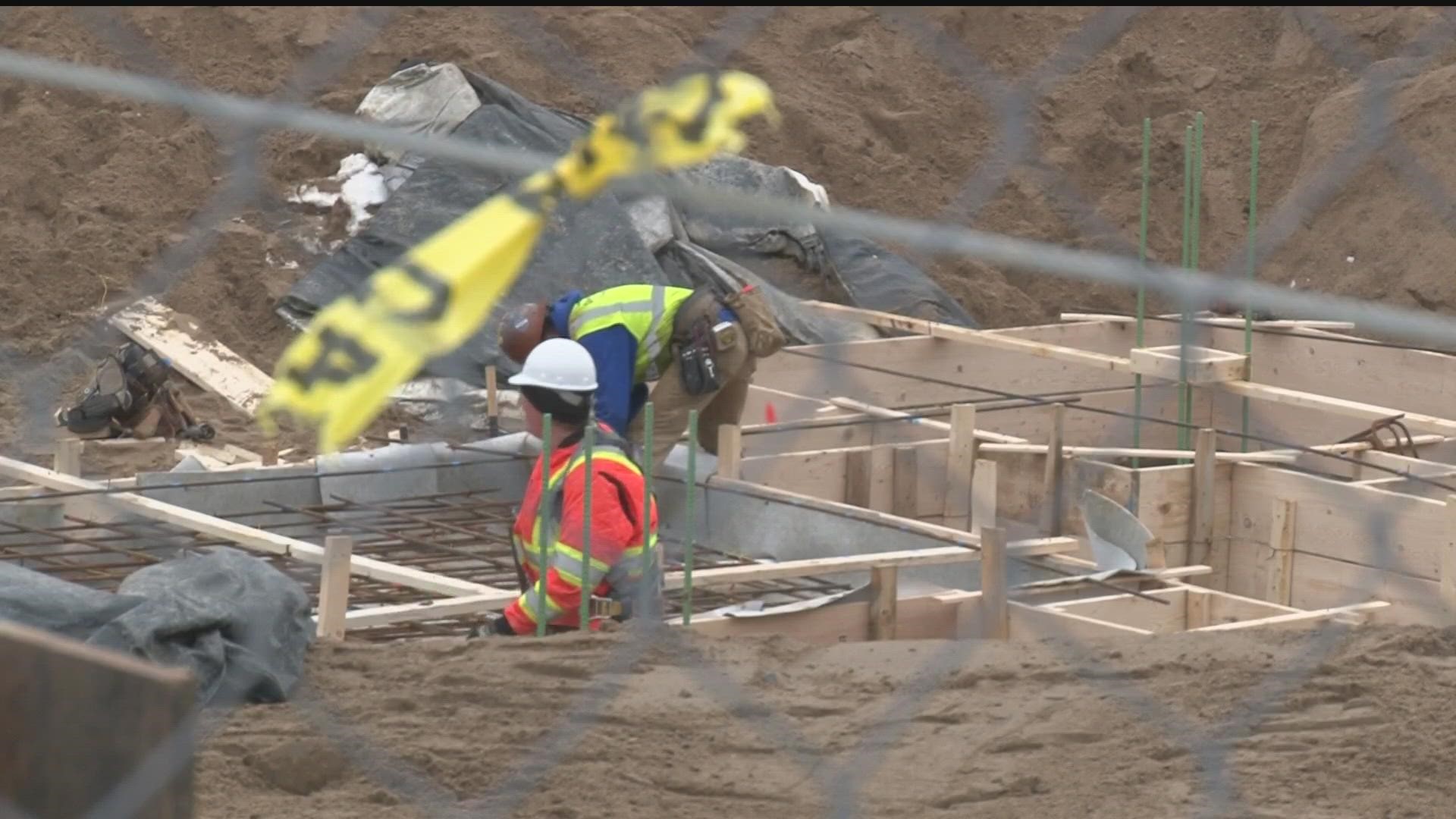ST PAUL, Minn. — State Capitol Democrats used two "B" words Wednesday when they rolled out a package of affordable housing proposals — bold and billions. As in $3 billion to tackle different aspects of the state's housing crisis.
The plan would also include a state rental assistance voucher program for the first time ever.
"Pandemic emergency funding has ended, but the gap between wages and the cost of housing has not closed and too many Minnesotans cannot afford their homes," Sen. Lindsey Port, a Burnsville Democrat, told reporters.
Sen. Port and Rep. Michael Howard, a Richfield Democrat, have already moved bills out of their respective housing committees to prove $50 million in emergency aid to agencies that serve the homeless. But the goal is much bigger.
"Our state government simply has not made housing a priority," Rep. Howard remarked. "If our entire state General Fund budget was a gallon jug of water, we would spend less than a tablespoon on housing."
Key features include:
- $1 billion in housing construction bonds to raise money to build and preserve affordable housing in Minnesota
- $1 billion in one-time emergency funding for programs fighting homelessness
- $1 billion in ongoing, year-after-year, spending aimed at solving the crisis
Included in that is $350 million for the housing voucher program, designed to help families that have applied for federal Section 8 vouchers and will spend years waiting for one to become available. Those vouchers allow families to pay 30% of their household income as rent, with housing agencies picking up the balance using federal dollars.
"When we do this, this will be the most transformational thing we've done to end child poverty in the state's history," Howard asserted.
Maeve Olson of the Beacon Interfaith Housing Collaborative spoke of her own childhood experience, moving 10 times before she reached high school age, and then finding stability when her mother received a rental voucher.
"The adjustable monthly 30% rent payment based on a household income was life-changing for our family and or our single mother who had to provide and care for four children while making less than $15,000 a year," Olson told reporters.
A contingent from the nonprofit Project for Pride in Living appeared at the press conference to show support for the proposal. The organization provides transitional and supported housing for some of the lowest income persons in the area, as well as career workforce training to help people move toward the goal of home ownership.
"My team works on getting the thing funded and developed, but it’s not only trying to find money to build the building itself. It’s also trying to make sure that we have rental assistance if people need that," Many Pant, a housing developer for PPL, told KARE.
She said affordable housing is harder to build than market rate housing for a variety or reasons, including the fact that multiple funding sources have to be found. The projects are also built to higher standards to make sure they'll be durable over the long run.
"We don’t just go to one bank and say, 'We want to build this,' and they do it. We apply to many. We have 10 to 20 sources of funding and each of them has slightly different things they want, so just getting that whole thing together is a challenge."
The costs of materials, labor, and financing have all gone up sharply since before the pandemic. That has meant that nonprofits like PPL are feeling the pinch.
"Just in the last three years, our insurance costs, security costs, maintenance costs have gone through the roof. When we model our projects, we predict 3% inflation, but it’s 6% right now."
PPL currently has two projects under development in the Highland Bridge complex in St. Paul. One is a $23 million supported housing project known as Restoring Waters, done in conjunction with Emma Norton Services, that will help displaced women and children.
The other is a $24 million workforce housing facility that will be called Nellie Francis Court. It provides apartments to those who are going through career training with PPL and are getting back into the labor market.
The Housing First Association, the group that represents developers and property management companies, said a more meaningful long-term solution would be for government to remove bureaucratic barriers to homebuilders in the state.
"A housing plan that does not consider lifting roadblocks to building more new starter homes is woefully incomplete," James Vagle, Housing First Minnesota's CEO, said in a statement released to the news media.
"Especially given that an affordable first home is widely understood to be one of the most critical contributors to an accessible housing market and generational wealth creation."
WATCH MORE ON KARE 11+
Download the free KARE 11+ app for Roku, Fire TV, and other smart TV platforms to watch more from KARE 11 anytime! The KARE 11+ app includes live streams of all of KARE 11's newscasts. You'll also find on-demand replays of newscasts; the latest from KARE 11 Investigates, Breaking the News and the Land of 10,000 Stories; exclusive programs like Verify and HeartThreads; and Minnesota sports talk from our partners at Locked On Minnesota.
- Add KARE 11+ on Roku here or by searching for KARE 11 in the Roku Channel Store.
- Add KARE 11+ on Fire TV here or by searching for KARE 11 in the Amazon App Store.
- Learn more about KARE 11+ here.

